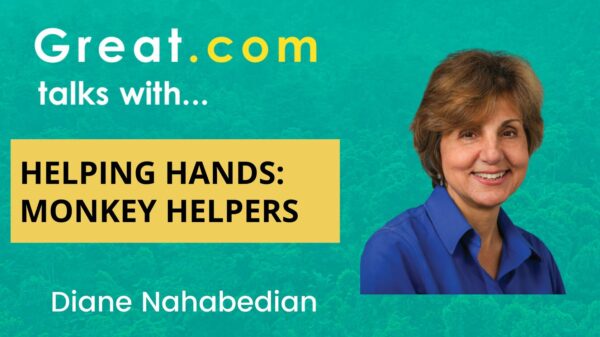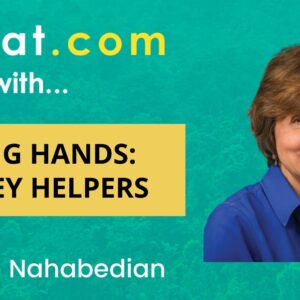
Danielle RIberio from Great.com interviewed Helping Hands: Monkey Helpers as part of their ‘Great.com Talks With…‘ podcast. This series is an antidote to negative news stories that aims to shed light on organizations and experts whose work is making a positive impact on the world.
A monkey helper offers excellent companionship. However, the right way to offer assistance to the disabled community is through technology. Anything from robotics to smart home technologies can replace the human-animal bond from Capuchin monkeys. To explain how that works, Danielle talked to Diane Nahabedian, Executive Director at Helping Hands: Monkey Helpers.
We are a non-profit organization that makes it its mission to improve the quality of life of members of the disabled community. Our organization went through a change in 2020 when we moved away from the “Helper Monkeys” model to assist disabled people through technology.
From Service Monkeys to Technology
We don’t just abandon our monkey helpers; we are committed to taking care of our post-service monkeys until the end of their natural lives. The monkeys will remain in natural care in our monkey living center where they have everything they need to live a brilliant life.
Now, we look towards innovative technologies to serve the wider physical disability community. Through the use of robotic arms, exoskeletons, adaptive wheelchairs, and home-assistive technologies, we look to improve the quality of life of members of the disabled community.
Great.com is an organization that wants to mitigate the global climate crisis by donating all of its profits to climate research initiatives. To generate the most money possible, they are getting creative and thinking outside the box. The organization works in a traditionally harmful and greedy industry — online casinos in New Jersey. They’re taking money that would otherwise go in the pockets of millionaires and moving it to high-impact organizations aimed at solving climate change.


